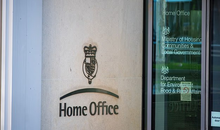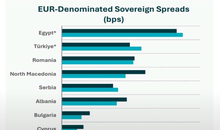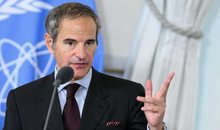
 Flash News
Flash News
Kurti and Vučić "face off" tomorrow in Skopje
Construction worker dies after falling from scaffolding in Berat
The prosecution sends two Korça Municipality officials to trial
Violation with the €2.3 million tender, GJKKO imposes security measures on the head of the Public Procurement Commission, he is suspended from duty
"Partizani" case, trial postponed to July 21 at the Special Court

One in six people worldwide is lonely and hundreds of thousands die each year as a result, according to a new analysis by the World Health Organization (WHO).
Concerns about an epidemic of loneliness have taken hold in pop culture and politics in recent years - and the WHO Commission on Social Connections aimed to determine exactly who is at risk and what this means for their well-being.
The report found that young people are most affected by loneliness, with about 20.9 percent of teenagers and 17.4 percent of adults under 30 saying they feel lonely. This compares to 11.8 percent of those aged 60 and over.
Overall, men and women feel about the same - but teenage girls are the loneliest group, with 24.3 percent saying they are lonely.
“There are many factors that are driving loneliness and isolation,” said Dr. Vivek Murthy, former U.S. surgeon general and co-chair of the commission, during a press conference.
He cited “poor physical and mental health, which unfortunately can further isolate individuals,” as well as “social marginalization” and “increasingly harmful or excessive use of digital media, particularly among young people,” as key problems.
Not everyone who spends time alone is lonely. The WHO says someone is socially isolated if they don't have enough social connections, while defining loneliness as the "painful feeling" that arises when people don't have the kind of relationships they desire.
Data on social isolation is more limited, but the commission believes it affects up to one in three older adults and one in four young people.
Both loneliness and social isolation can have serious health consequences. They are linked to an estimated 871,000 deaths a year, increasing the risk of stroke, heart disease, diabetes, cognitive decline and poor mental health, the report found.
But having strong social ties can improve people's health and even help them live longer, the commission said.
Taking measures to combat loneliness
WHO experts called on national governments to make loneliness a policy priority, and for more research into strategies that can help strengthen social connections.
"For too long, we have not recognized the importance of public health," Murthy said. "That has to change."
Some countries are already taking steps in this direction. Sweden, for example, launched a 30 million euro plan this year to combat loneliness, for example by offering help to elderly people who may be isolated, said Jakob Forssmed, the Swedish minister for social affairs and public health.
In the coming months, Sweden will start giving young people aged 16 to 18 "activity cards" with money that can be spent on civil society groups, sports, outdoor activities and cultural events - but only for activities that involve other people, Forssmed said during the briefing.
The goal is to better equip young people with social skills and strengthen connections between people of all ages.
"This is not a problem for those who are lonely, those who are isolated," Forssmed said. "This is a problem for the whole of society."/ Euronews.
Latest news


Tourism: new season, old problems
2025-06-30 18:27:23


Construction worker dies after falling from scaffolding in Berat
2025-06-30 17:51:44




Almost free housing: East Germany against depopulation
2025-06-30 16:43:06

Hamas says nearly 60 people killed in Gaza as Trump calls for ceasefire
2025-06-30 16:14:15
Drownings on beaches/ Expert Softa: Negligence and incompetence by institutions!
2025-06-30 16:00:03


European ports are overloaded due to Trump tariffs
2025-06-30 15:30:44
The prosecution sends two Korça Municipality officials to trial
2025-06-30 15:19:54

Lezha/ Police impose 3165 administrative measures, handcuff 19 drivers
2025-06-30 14:55:04
Young people leave Albania in search of a more sustainable future
2025-06-30 14:47:52
Record-breaking summer, health threats and preventive measures
2025-06-30 14:36:19


Constitution of the Parliament, Osmani invites political leaders to a meeting
2025-06-30 14:07:54

Heat wave 'invades' Europe, Spain records temperatures up to 46 degrees Celsius
2025-06-30 13:42:02
Accident in Vlora, car hits 2 tourists
2025-06-30 13:32:16

Kurti confirms participation in today's official dinner in Skopje
2025-06-30 13:03:27

Fight between 4 minors in Kosovo, one of them injured with a knife
2025-06-30 12:38:45

Report: Teenage girls the loneliest in the world
2025-06-30 12:20:40
Commissioner Kos and Balkan leaders meet in Skopje on Growth Plan
2025-06-30 12:07:59
Wanted by Italy, member of a criminal organization captured in Fier
2025-06-30 11:55:53
Hundreds of families displaced by wave of Israeli airstrikes in Gaza
2025-06-30 11:45:17

Zenel Beshi: The criminal who even 50 convictions won't move from Britain
2025-06-30 11:23:19
A new variant of Covid will circulate during the summer, here are the symptoms
2025-06-30 11:14:58


"Partizani" case, trial postponed to July 21 at the Special Court
2025-06-30 10:41:05
Uncontrolled desire to steal, what is kleptomania, why is it caused
2025-06-30 10:30:08
Requested change of security measure, hearing for Malltez postponed to July 7
2025-06-30 10:24:32


Output per working hour in Albania 35% lower than the regional average
2025-06-30 09:54:35


The trial for the "Partizani" file begins today
2025-06-30 09:27:57
22 fires in the last 24 hours in the country, 2 still active
2025-06-30 09:21:28
How is the media controlled? The 'Rama' case and government propaganda
2025-06-30 09:13:36
German top diplomat: Putin wants Ukraine to capitulate
2025-06-30 09:00:07
Foreign exchange, how much foreign currencies are sold and bought today
2025-06-30 08:44:38
Chart/ Sovereign risk for Albania from international markets drops significantly
2025-06-30 08:26:38
Horoscope, what do the stars have in store for you?
2025-06-30 08:11:44
Clear weather and passing clouds, here is the forecast for this Monday
2025-06-30 07:59:32
Morning Post/ In 2 lines: What mattered yesterday in Albania
2025-06-30 07:47:37
Milan make official two departures in attack
2025-06-29 21:57:23
6 record tone
2025-06-29 21:30:46
4-year-old girl falls from balcony in Lezha, urgently taken to Trauma
2025-06-29 21:09:58


Assets worth 12 million euros seized from cocaine trafficking organization
2025-06-29 19:39:43
Fire in Durrës, Blushi: The state exists only on paper
2025-06-29 19:17:48

Fire endangers homes in Vlora, helicopter intervention begins
2025-06-29 18:27:51
France implements smoking ban on beaches and parks
2025-06-29 18:02:08
England U-21 beat Germany to become European champions
2025-06-29 17:42:49
Trump criticizes Israeli prosecutors over Netanyahu's corruption trial
2025-06-29 17:08:10
Street market in Durrës engulfed in flames
2025-06-29 16:52:57

UN nuclear chief: Iran could resume uranium enrichment within months
2025-06-29 16:03:24
Albanian man dies after falling from cliff while climbing mountain in Italy
2025-06-29 15:52:01

Another accident with a single-track vehicle in Tirana, a car hits a 17-year-old
2025-06-29 15:07:15
While bathing in the sea, a vacationer in Durrës dies
2025-06-29 14:54:01
Sentenced to life imprisonment, cell phone found in Laert Haxhiu's cell
2025-06-29 14:26:40
77 people detained in protest, Vučić warns of new arrests
2025-06-29 14:07:46

From a hospital for children to a prison for politicians
2025-06-29 13:34:02
77-year-old man found dead in Pogradec
2025-06-29 13:13:10
The Metropolitan of Gjirokastra passes away
2025-06-29 12:52:27
The 39th session to elect the speaker of Kosovo's parliament also fails
2025-06-29 12:31:28
France bans smoking on beaches and parks
2025-06-29 12:16:23
Alarm from the Philippines: Albania, a growing destination for labor trafficking
2025-06-29 11:50:34

After 2-year ban, Paul Pogba signs with Monaco
2025-06-29 11:15:15
Can Albania produce all the food it needs?
2025-06-29 11:02:12



New study says: ChatGPT can damage your brain
2025-06-29 09:25:26
Violence and clashes at student protest in Belgrade
2025-06-29 09:12:22
Foreign exchange, the rate at which foreign currencies are sold and bought
2025-06-29 08:59:46

Horoscope, what do the stars have in store for you today?
2025-06-29 08:33:06
Hot weather, temperatures reach 39 degrees Celsius
2025-06-29 08:16:12
Morning Post/ In 2 lines: What mattered yesterday in Albania
2025-06-29 08:01:38
